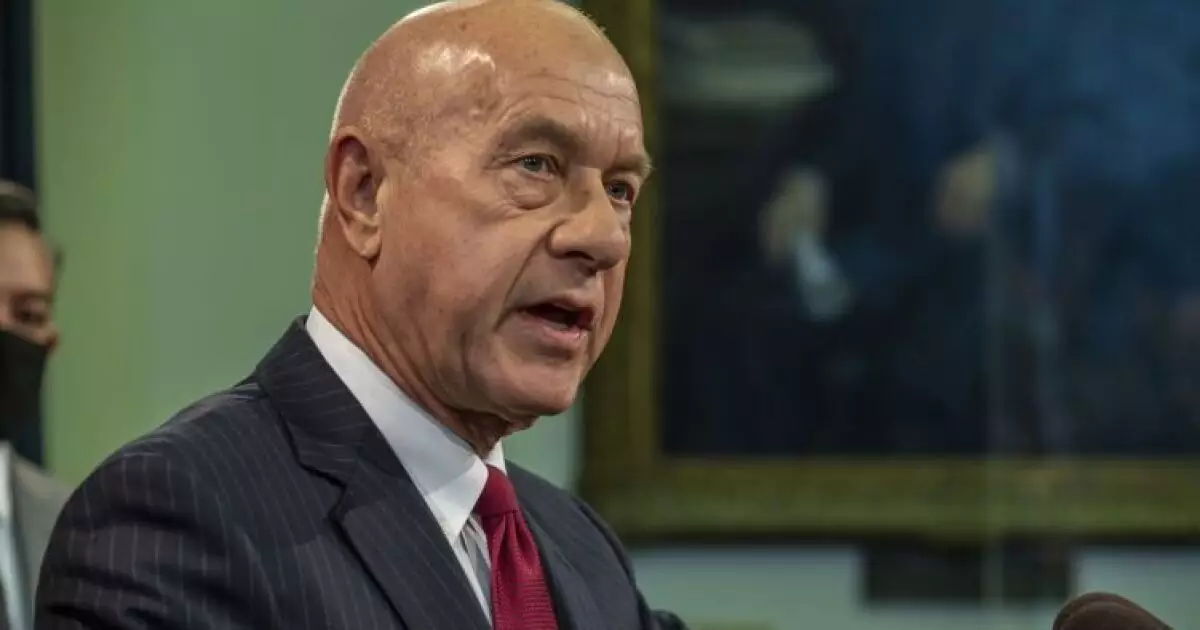In a striking revelation, Houston Mayor John Whitmire has announced a significant financial agreement that appears to pave the way for solving some of the city’s lingering infrastructure woes. The need for this pact stemmed from a lawsuit filed in 2019 that threatened to ensnare the city in a spiraling fiscal crisis, mandating a minimum of $100 million of property tax revenue per year dedicated to drainage and road maintenance. Critics argue that this decision merely illustrates the city’s struggle to maintain its infrastructure, potentially laying the groundwork for further financial pitfalls down the road.
While it’s undeniable that Houston faces challenges with aging infrastructure, proponents of the agreement must ponder whether the end justifies the means. Mayor Whitmire’s declaration of relief from an impending budget deficit—projected to reach an unsustainable $320 million—feels more like a band-aid than a comprehensive solution. With property revenues earmarked to rise from the current 57% allocation to a 100% commitment by fiscal year 2028, the question looms: will the city’s finances be robust enough to shoulder this newfound burden?
The Infrastructure Illusion
Much of the initial excitement around this announcement stems from the idea that Houston can inject hundreds of millions into repairing its creaking infrastructure—an imperative need that everyone acknowledges. However, there’s an unsettling undercurrent to this optimism. By reallocating property tax revenue, the city risks diminishing its flexibility in budgeting for other essential services. As taxpayers cheer the prospect of better roads and drainage, they may overlook the potential consequences on public safety and emergency services funding, areas that are already on thin ice.
Interestingly, the city council’s overwhelmingly positive response reflects a broader reluctance to challenge the administration’s financial strategies. Mayor Pro Tem Martha Castex-Tatum’s enthusiasm is commendable, yet it masks an impending reality. Considering the recent revisions to Houston’s credit ratings, suggesting that financial mismanagement has shifted the outlook from stable to negative, can we trust that optimism aligns with sound fiscal policy?
A Reliance on Short-Term Solutions
The urgency of Mayor Whitmire’s plans for the fiscal 2026 budget seems to prioritize immediate needs over sustainable governance. With reserves having dwindled from $349 million to $228 million in just a couple of months, the message is clear: Houston is in a precarious position. This quick turnaround invites skepticism regarding the city’s ability to manage its resources wisely. While the looming Texas bill allocating 30% of excess Harris County Toll Road Authority revenue might appear to bolster public safety funding, it leaves questions unanswered about long-term stability.
The central theme emerging from this financial labyrinth is that Houston is caught in a web of its own making, relying heavily on external funding and legal settlements to stay afloat. Instead of the bold leadership Houston needs to innovate and tackle long-standing issues, we’re witnessing a response that seems almost reactionary—prolonging the cycle of dependency on external support rather than ensuring self-sustaining fiscal health.
Houston must embrace a more proactive and strategic approach to governance, one that evaluates the delicate balance between immediate relief and the necessity for long-lasting solutions, lest it finds itself trapped within both financial and infrastructural quicksand.

